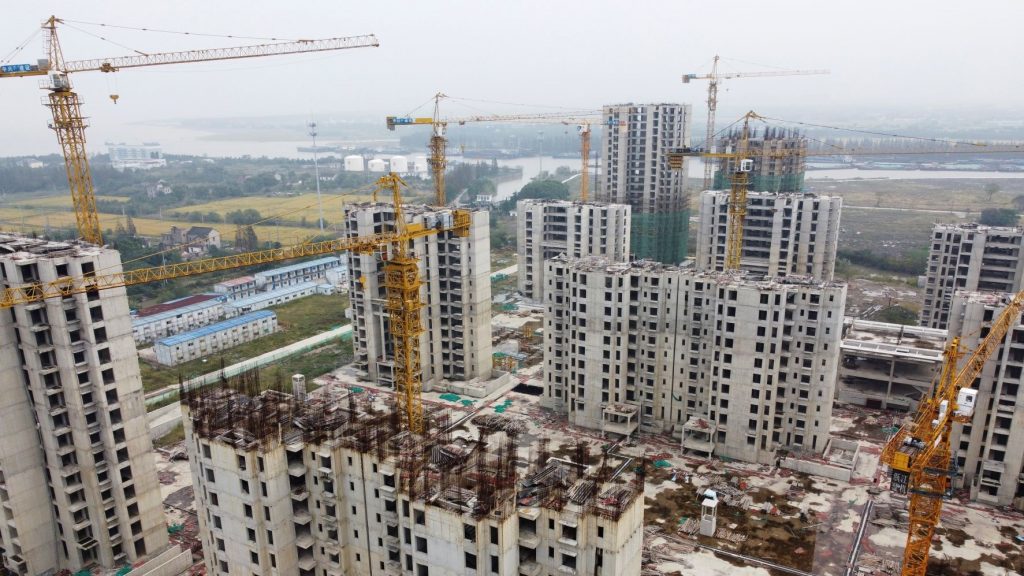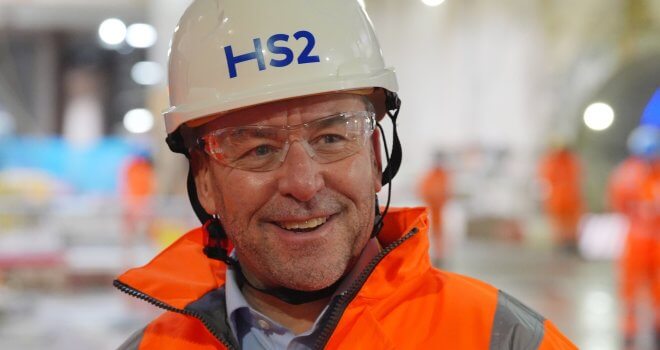Evergrande EV Unit Shares Jump After Chairman Signals Business Shift

Shares in China Evergrande Group’s electric vehicles (EV) unit rose on Monday as the embattled property developer moved to prioritise the growth of its nascent EV business over its troubled core real estate operations.
Evergrande, reeling under more than $300 billion in liabilities, averted a costly default last week with a last-minute bond coupon payment, buying it more time to head off a looming debt crunch with its next major payment deadline on Friday.
An announcement by its chairman, Hui Ka Yan, reported by state media on Friday, that it would make its new electric vehicle venture its primary business, instead of property, within 10 years, cheered investors on Monday.
Evergrande rose as much as 6% during the session before closing down 0.7%. China Evergrande New Energy Vehicle Group Ltd rose 11.4%. The benchmark Heng Seng Index was flat.
Raymond Cheng, CGS-CIMB Securities’ head of China research, said the business shift makes sense given Beijing’s growing support for EVs and its increased tightening of the frothy real estate sector.
“This is the best outcome, if it just focuses on existing developments and maintains the operation,” Cheng said.
While the move would help Evergrande deleverage by gradually scaling down its massive undeveloped land holdings, Cheng said it was unclear how it would affect the company’s planned disposals including stakes in the EV unit.
Evergrande’s new vehicle business, founded in 2019, has yet to reveal a production model or sell a single vehicle. Last month, the unit warned it was still seeking new investors and asset sales, and that without either it might struggle to pay salaries and cover other expenses.
Hui expects property sales will slow to about 200 billion yuan ($31.31 billion) per year within the 10-year period, compared to more than 700 billion yuan last year, China’s Securities Times reported on Friday.
NEXT HURDLES
News late last week that Evergrande had averted a default by securing $83.5 million for the last-minute payment of interest on a bond has lifted confidence the company may be able to avoid a messy collapse that would have significant ramifications for global financial markets.
On Monday, sources told Reuters some bondholders had received coupon payments they were owed last week, which suggested debt problems were being addressed.
Evergrande next needs to find $47.5 million by Friday and has nearly $338 million in other offshore coupon payments coming up in November and December.
Broader concerns about China’s real estate sector, which accounts for a quarter of gross domestic product, still loom large for investors and policymakers in the world’s second-largest economy.
Developer Modern Land has a $250 million bond maturing on Monday. It said last week it ended an attempt to seek bondholder approval to extend the maturity date of the notes by three months, citing liquidity issues.
Calls to Modern Land’s investor relations office were not answered when Reuters sought comment on whether the payment has been made.
As liquidity concerns in the sector grow, property firms with large dollar-denominated debts will meet with the National Development and Reform Commission in Beijing on Tuesday to report their total issuance volume and repayment capability, a source with direct knowledge of the matter said.
Media outlet Cailianshe first reported the meeting earlier on Monday.
Separately, Evergrande said on Sunday work had resumed on more than 10 projects in six cities including Shenzhen. Many of its projects had been halted due to payments owed to suppliers and contractors.
Also lifting general confidence, state media outlet Xinhua in an article on Monday said the spillover effect of Chinese real estate companies’ debt default risks to the financial industry would be controllable.
The report follows comments from senior officials including Vice Premier Liu He and central bank governor Yi Gang last week, who also said property companies were facing debt default issues because of poor management and a failure to adjust to market changes.
(Reporting by Clare Jim and Donny Kwok in Hong Kong, Andrew Galbraith in Shanghai, Jing Xu in Beijing; editing by Richard, Pullin, Sam Holmes and Christian Schmollinger)




